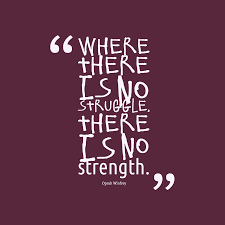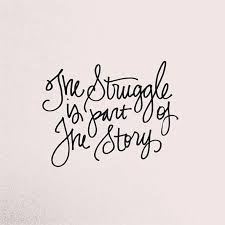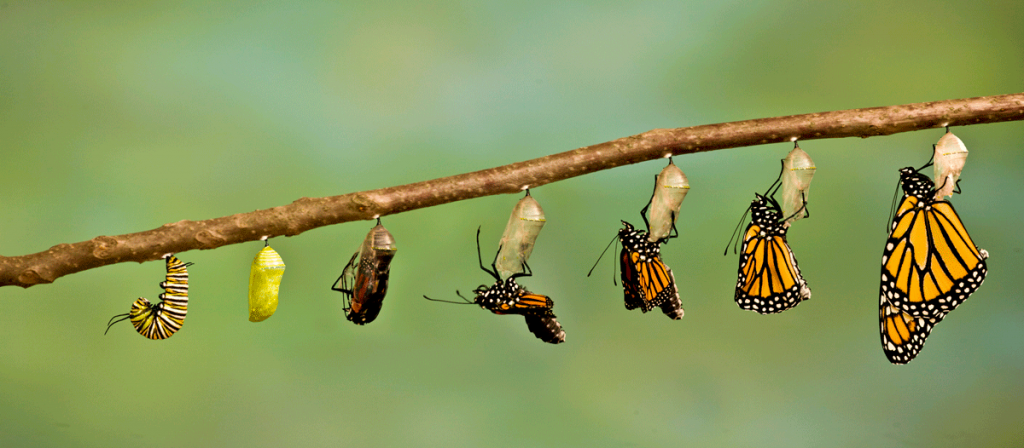As a family, a school, and a community, we want what is best for our children; we want them to be successful, to have a world of opportunities, to be comfortable, and to be confident. For some, this means finding the right balance between guiding and supporting without an overemphasis on doing, problem-solving, decision-making, and shielding from negative experiences or natural consequences. Perhaps I’m pushing the season a bit, hoping for Spring to finally arrive, but… when I think about the consequences of over-engagement, I think about the butterfly, who needs to struggle, to fail, and to try again and again to work its way out of the safety of its cocoon; if we free it too soon, it doesn’t develop the necessary strength, independence, and resilience to fly into the world.
A Note to School
My children are now grown and living independently on their own, but I still find myself actively engaged in their lives and at times, in their educational pursuits. As day-to-day living kicks in, I often wonder whether my level of engagement was, and continues to be, too much, too little, or just right. Over the years, I have retained evidence of their learning; today, I can honestly say it is hard to believe that some of the work was done by a child. Despite their success in such work, I now wonder how much problem-solving, independence, and pride in work done I may have taken from them. Today, I am more aware of the need to sit back and support in a way that leaves decision-making in tact ensuring that the ultimate finished product is their work, even if they struggle. It’s not always easy to let go (more difficult when it doesn’t fit my vision!), but I now work harder at this being part of our story.
A still-growing parent
On the whole, families, schools, and communities encounter the whole spectrum – from perceived under-engagement to over-engagement, to simply a mismatch between what is being asked and what is being done. Over-engagement, for many families, schools, communities, even sports teams is a topic of much discussion: See Can Too Much Parental Involvement Have a Negative Effect on Elementary Students? Parental Involvement in School Projects: Too Much of a Good Thing, Can Too Much Parental Involvement Be Bad?, Taming the Beast: Excessive Parental Involvement in Youth Sports, just to name a few.
- At a time when we are talking about enhancing engagement, how do we open discussion of just what it might mean to be over-engaged?
- Is there really such a thing as over-engaged?
- When does support and guidance turn into overprotecedness, overengagement, and/or overstepping our role as family, school, or community?
- How do we accomplish that just right balance that we know supports student success and wellbeing?

I see the differentiation between actively engaged and over-engaged a little like The Butterfly Story… if we help too much and do the work for our children, they may emerge from the security and safety of their cocoon less than able to cope on their own. But if we support, encourage, and guide, they can emerge just like the butterfly, ready and willing to face a world of opportunities.
Quite honestly, we don’t like to see our children struggle, but… there are times when the best thing we can do is sit back and let them work through some of the small struggles on their own, building strength and resilience along the way. Removing the struggle for success and growth is like helping the butterfly out of its cocoon too soon. Without intent, we may be preventing them from developing the skills they need to soar to heights we’ve never imagined.
The reality is that children, like butterflies need room to struggle, room to fail, room to make decisions, and room to experience a full range of emotions. This is not to say that we aren’t going to be there for our children, but it is to say that some of the decisions we make as parents – for example, to hover, overprotect, or overstep – can in negative consequences; the patterns we establish when they are small are likely the same patterns we will adopt as they get older.
So, how do we support and engage with our children without stepping into the realm of over-engagement? It really is such a fine line.
 Allow children to make good choices along with the bad in order to learn to trust their own judgment. They will do this as they experience natural consequences (e.g., If you play in the water, you are likely to get wet) and learn to fully assess alternatives and possible solutions. If we make all of their choices, they don’t get the chance to grow their independence, strength, self-confidence and self-esteem over time.
Allow children to make good choices along with the bad in order to learn to trust their own judgment. They will do this as they experience natural consequences (e.g., If you play in the water, you are likely to get wet) and learn to fully assess alternatives and possible solutions. If we make all of their choices, they don’t get the chance to grow their independence, strength, self-confidence and self-esteem over time.
Don’t shield children from getting it wrong. Removing decision-making or always guiding them toward the right response may make children feel like they need to be perfect to fulfill our expectations. Making mistakes is part of growth; the greatest mistake we can make is in not trying, and… the only time perfect should be used is in conjunction with perfectly normal.
 Encourage independence not dependence. Children can hardly find their way in the world when we, as adults, don’t let them have their own experiences. While interest and input are desirable, choosing all their extracurricular activities, filling up their social calendars, micromanaging play dates, solving their social problems, doing their homework/projects, or being overly intrusive may create a situation where children miss out on figuring out what they want, prefer, and like for themselves, or even who they are.
Encourage independence not dependence. Children can hardly find their way in the world when we, as adults, don’t let them have their own experiences. While interest and input are desirable, choosing all their extracurricular activities, filling up their social calendars, micromanaging play dates, solving their social problems, doing their homework/projects, or being overly intrusive may create a situation where children miss out on figuring out what they want, prefer, and like for themselves, or even who they are.
Learn to let go where appropriate and be a good guide. There will come a time when all chidren test their wings and exert their independence. They still need us, but in a different way. As adults in children’s lives, we need to learn to trust them just as they come to trust us. We can continue to engage by offering them choices and options, supporting their developing identity and determination, and encouraging them them to set and reach goals. We can work toward a mutual compromise that supports the whole child in and out of school.
Shower them with love not stuff. We can never love them too much, but we can spoil them (even creating expectation or entitlement) by giving them every advantage and every thing, by solving every little problem, by removing possible consequencs or necessary hurdles, or by shielding them from everything that is negative. Natural consequences, negative experiences and conflict management are hard lessons for children to learn (often more difficult for us to watch!), but they’re important for character development and independence over the longer term.
 Just like the butterfly, children need to struggle with success, gradually working their way through the security and comfort of their life’s cocoons. No two will emerge the same, but we can help them to soar through life with confidence and resilience.
Just like the butterfly, children need to struggle with success, gradually working their way through the security and comfort of their life’s cocoons. No two will emerge the same, but we can help them to soar through life with confidence and resilience.
What can you add to this list? What has worked for you?



Another informative, thoughtful and thought- provoking entry …. “the reality is, children, like butterflies, need room to struggle….” Thanks, Michelann. Keep up the good work!